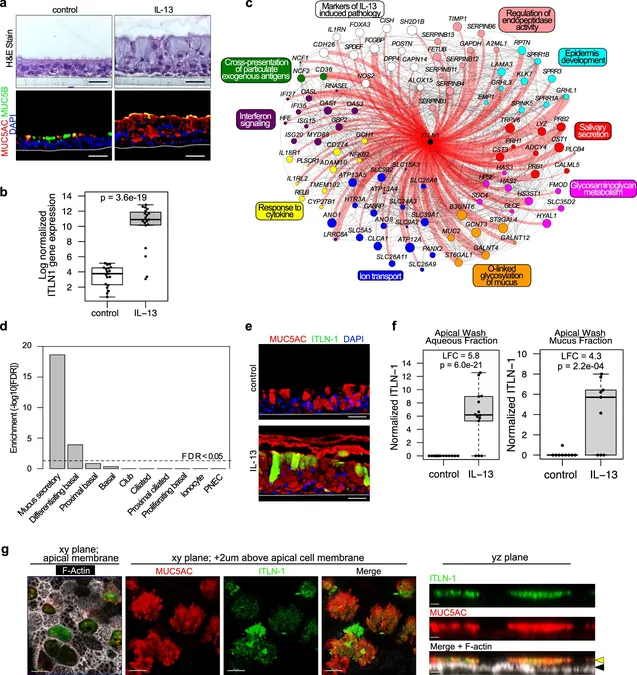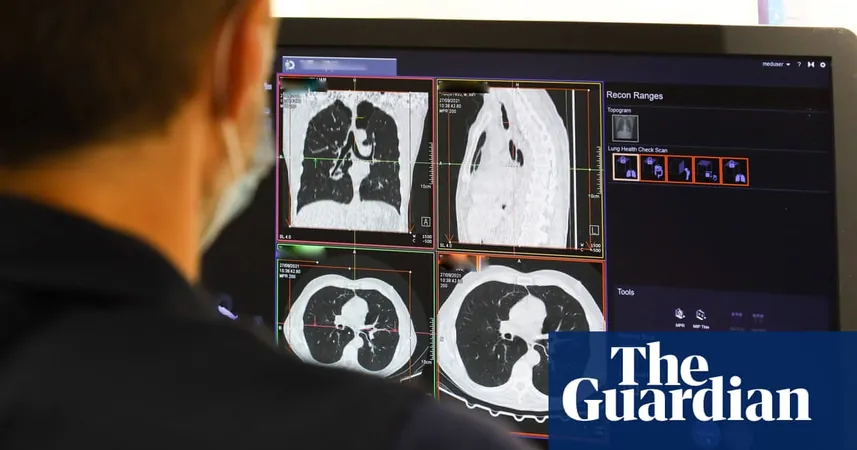
Breakthrough Discovery: A New Protein Could Revolutionize Asthma Treatment!
2024-11-13
Author: John Tan
Breakthrough Discovery: A New Protein Could Revolutionize Asthma Treatment!
In a groundbreaking study led by researchers at National Jewish Health, a significant advancement has been made in understanding the mechanisms behind mucus plugs in asthma, particularly in patients with type-2 inflammatory asthma. These mucus plugs are a notorious challenge for asthma patients, leading to severe airway obstruction and symptoms like coughing, wheezing, and breathlessness.
Published in the prestigious journal *Nature Communications*, the study highlights a specific protein called intelectin-1, which is implicated in the production of pathological mucus within these plugs. The identification of intelectin-1 has opened up exciting possibilities for new therapeutic interventions aimed at easing airway obstructions in asthma sufferers.
Dr. Max A. Seibold, director of the Regenerative Medicine and Genome Editing Program at National Jewish Health, explained that type-2 inflammation activates airway cells, causing them to produce various proteins that alter the mucus's molecular structure. This modification leads to mucus that is not only sticky but also viscous, making it virtually impossible for patients to clear from their airways effectively.
Despite the substantial impact that mucus plugs have on asthma management, the exact mechanisms of their formation have remained shrouded in mystery—until now. The research team utilized lung airway cells from their biorepository to construct a cellular model that mimics T2 inflammation, enabling them to rigorously investigate the role of intelectin-1 in mucus formation.
Their findings revealed that mucus rich in intelectin-1 was poorly transported by airway cells, due to the protein’s complex interactions with mucus structures. Through genetic engineering, when researchers disabled the production of intelectin-1, they observed a significant improvement in the movement of the mucus, indicating that this protein plays a vital role in mucus obstruction.
Furthermore, the researchers explored genetic variations in the intelectin-1 gene among a diverse cohort of asthma patients. Astonishingly, they discovered a variant that correlates with reduced levels of intelectin-1 and found that individuals with this variant were less likely to experience mucus plug formation. This suggests that the presence of this genetic variant could potentially serve as a protective factor against severe asthma symptoms.
Looking ahead, Drs. Seibold and Jamie Everman, the study's first author, plan to delve deeper into how intelectin-1 contributes to mucus obstructions and aim to develop treatments that could inhibit its function. This pioneering research not only sheds light on effective asthma management but also hints at a future where personalized medicine could lead to tailored therapies based on an individual's genetic makeup.
Asthma affects millions globally, and with ongoing advances like this, there is renewed hope for better management strategies that can significantly improve the quality of life for those who suffer from this chronic condition. Will this be the turning point in asthma care we've all been waiting for? Stay tuned!


 Brasil (PT)
Brasil (PT)
 Canada (EN)
Canada (EN)
 Chile (ES)
Chile (ES)
 España (ES)
España (ES)
 France (FR)
France (FR)
 Hong Kong (EN)
Hong Kong (EN)
 Italia (IT)
Italia (IT)
 日本 (JA)
日本 (JA)
 Magyarország (HU)
Magyarország (HU)
 Norge (NO)
Norge (NO)
 Polska (PL)
Polska (PL)
 Schweiz (DE)
Schweiz (DE)
 Singapore (EN)
Singapore (EN)
 Sverige (SV)
Sverige (SV)
 Suomi (FI)
Suomi (FI)
 Türkiye (TR)
Türkiye (TR)